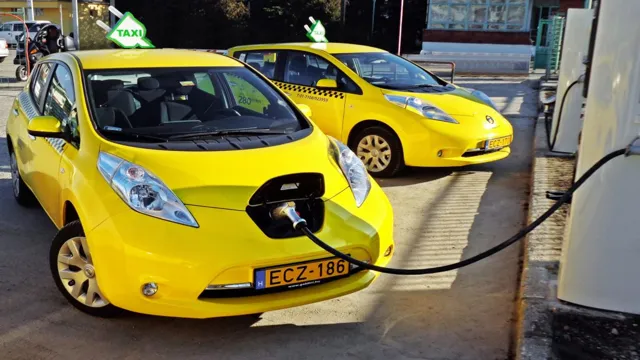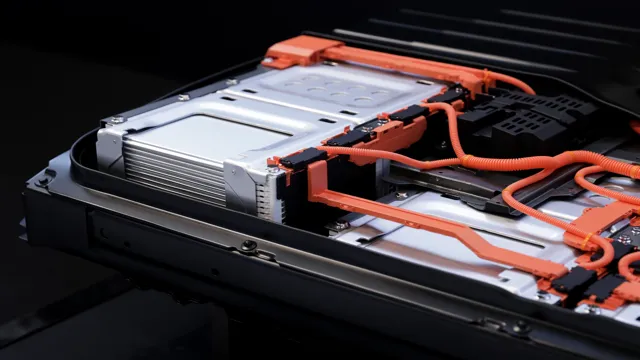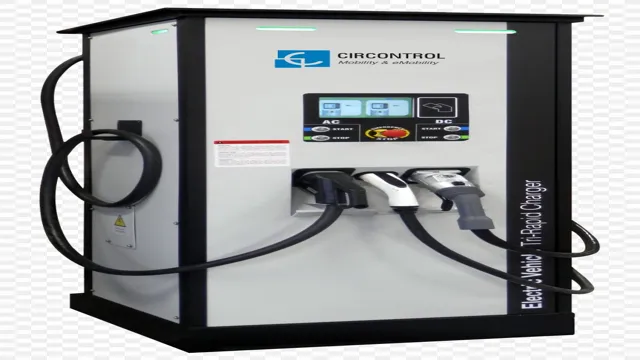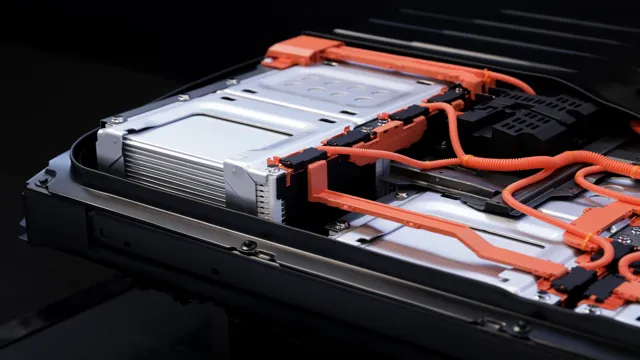Revving Up for the Future: Exploring the Best Battery Electric Cars of 2019
Looking for a reliable and eco-friendly ride for your daily commute? Look no further than the top 10 battery electric cars of 201 With electric vehicles becoming more mainstream, car manufacturers are stepping up their game to provide high-performing and stylish options. But with so many choices out there, it can be overwhelming to choose just one.
That’s where our list comes in: We’ve sorted through the best of the best to give you the top 10 battery electric cars of 201 So sit back, relax, and prepare to be pleasantly surprised by what these cars have to offer.
Range and Battery Life
Battery electric cars in 2019 have made significant strides in terms of their range and battery life. Long gone are the days of limited driving distances before needing a recharge. With advancements in battery technology, many electric cars can travel over 200 miles on a single charge.
The Tesla Model S, for instance, boasts a range of up to 370 miles, while the Chevy Bolt can travel up to 238 miles on a single charge. Other models, like the Nissan Leaf and BMW i3, offer ranges of around 150 miles. Battery technology has also improved when it comes to charging times.
Some electric cars can now be charged up to 80% in as little as 30 minutes. These improvements go to show that the range anxiety many people have when it comes to electric cars is becoming less of an issue. With battery ranges and charging times consistently improving, electric cars are becoming a more practical and reliable option for drivers looking for a sustainable and eco-friendly mode of transportation.
Tesla Model S – 370 Miles
If you’re in the market for an electric vehicle with long-range capabilities, then look no further than the Tesla Model S. With a range of up to 370 miles on a single charge, this luxurious sedan can take you where you need to go without worrying about running out of juice. The Tesla Model S achieves this impressive range thanks to its cutting-edge battery technology, which uses thousands of individual cells to store energy and power the car’s electric motors.
And if you’re worried about how long it takes to charge the battery, don’t be – with a Tesla Supercharger, you can add up to 200 miles of range in just 15 minutes. Plus, the Model S features a regenerative braking system, which captures energy lost during braking and feeds it back into the battery for even more efficiency. So if you’re looking for an EV that doesn’t sacrifice range for luxury, the Tesla Model S is definitely worth considering.
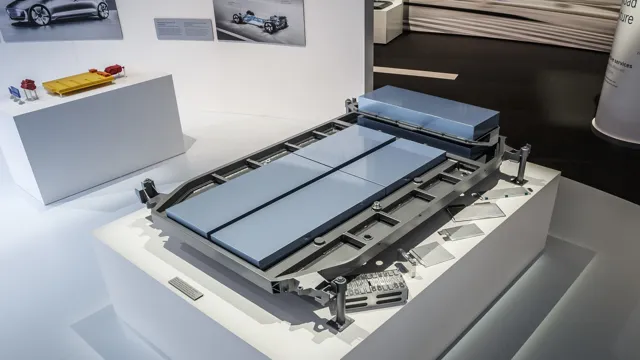
Jaguar I-PACE – 292 Miles
The Jaguar I-PACE has an impressive range of 292 miles on a single charge, making it a top contender for electric vehicle enthusiasts. The vehicle is equipped with a 90 kWh lithium-ion battery that powers two electric motors, providing 394 horsepower and 512 lb-ft of torque. The I-PACE also has an efficient regenerative braking system and an aerodynamic design that enhances its range and battery life.
With a quick 30-minute charge, the I-PACE can replenish up to 80% of its battery capacity using DC fast charging. Overall, the I-PACE strikes a balance between performance and efficiency, offering a range that is more than enough for most daily commutes and weekend trips. With its impressive range, the Jaguar I-PACE sets a new standard for electric vehicles, proving that they can be both practical and fun to drive.
Audi e-tron – 204 Miles
The Audi e-tron, the brand’s first all-electric vehicle, boasts a range of 204 miles. This is great news for those who have been hesitant to switch to an electric vehicle due to concerns about range anxiety. The e-tron has a large 95 kWh battery pack, which is one of the biggest on the market today.
Charging the e-tron to full capacity takes around 9 hours using a 240V Level 2 charger. An even faster charge can be achieved using a 150 kW DC fast charger, which can charge the car up to 80% in just 30 minutes. Overall, the e-tron’s range and battery life make it a great option for those looking for a reliable and practical electric SUV.
With its impressive range, this car is perfect for those who want to embark on longer trips, but don’t want to compromise on battery life.
Performance and Speed
When it comes to battery electric cars in 2019, performance and speed are key factors to consider. With advancements in technology, electric cars now have the ability to compete with traditional gasoline-powered vehicles in terms of acceleration and top speeds. For example, the Tesla Model S can go from zero to sixty in just
4 seconds, which is faster than many high-end sports cars. Additionally, electric cars have instant torque, meaning they can quickly accelerate from a standstill, making them great for city driving. However, one drawback to electric cars is their limited range, which can affect their performance on longer trips.
Overall, if you’re looking for a fast and efficient vehicle, a battery electric car may be just what you need.
Porsche Taycan – 0-60 mph in 2.6 seconds
The Porsche Taycan is a true testament to the incredible advancements in electric vehicle technology. This beauty of a car can go from 0-60 mph in just 6 seconds, absolutely exhilarating for any car enthusiast.
The incredible speed and performance of the Taycan is thanks to its cutting-edge electric drivetrain technology and powerful lithium-ion battery pack. The result is a truly remarkable driving experience that is both smooth and exhilarating. If you’re looking for a car that can deliver incredible speed and performance while also being environmentally conscious, then look no further than the Porsche Taycan.
It’s a true revolution in the world of electric vehicles, setting new standards for speed and performance in the industry.
Tesla Model 3 – 0-60 mph in 3.2 seconds
If you’re looking for a high-performance electric car, the Tesla Model 3 might be just what you need. With its impressive acceleration of 0-60 mph in just 2 seconds, this sleek and stylish vehicle can reach highway speeds faster than many gas-powered sports cars.
The Model 3’s instant torque allows for a smooth and responsive driving experience, making it a favorite among car enthusiasts. And with its advanced lithium-ion battery technology, the Model 3 can achieve a driving range of up to 358 miles on a single charge. So whether you’re looking for speed or efficiency, the Tesla Model 3 is sure to impress.
Nissan Leaf – 147 horsepower
The Nissan Leaf is an electric car that has been making waves in the automobile industry since its debut in 20 One of the key highlights of this car is its impressive performance and speed. The Nissan Leaf comes equipped with a 147 horsepower electric motor that can go from 0 to 60 miles per hour in just
5 seconds. This means that you can enjoy a smooth ride while keeping your carbon footprint in check. Additionally, the car’s battery pack allows for a range of up to 150 miles on a single charge.
This makes it perfect for daily commutes or weekend getaways without the need for frequent charging stops. The Nissan Leaf proves that electric cars can be just as powerful and exciting as their gas-guzzling counterparts. So, if you’re looking for an eco-friendly car that delivers on performance and speed, the Nissan Leaf should definitely be on your radar.
Design and Features
Battery electric cars in 2019 have seen advancements in both design and features. Manufacturers are pushing the boundaries with new technologies such as longer battery life and faster charging times. The exterior designs of electric cars are becoming increasingly refined and modern, ranging from sleek and aerodynamic to bold and unique.
The interiors of these cars are also receiving makeovers, with high-tech features such as touchscreen displays, voice-activated controls, and advanced safety systems. Additionally, electric cars are typically much quieter and smoother than traditional gasoline-powered cars, making for a peaceful and relaxing driving experience. With all these advancements, it’s no wonder that battery electric cars are becoming more popular among consumers, as they offer a greener and more efficient alternative to traditional transportation.
As we move towards a more sustainable future, the design and features of battery electric cars will continue to evolve and revolutionize the automotive industry.
BMW i3 – Futuristic Design
When it comes to futuristic car designs, the BMW i3 takes the cake. This electric car boasts a unique, almost spaceship-like appearance with its high roofline, asymmetrical doors, and smooth curves. The BMW i3 may look small on the outside, but its interior is surprisingly spacious due to its clever design.
The dashboard features a clean, modern look with a large touchscreen display that controls various functions of the car. You can even add sustainable materials to the interior, such as recycled plastics or renewable wood. But the features don’t stop there.
The BMW i3 also includes regenerative braking, meaning that it captures energy usually lost during braking and uses it to recharge the electric battery. With all of these innovative features, it’s no surprise that the BMW i3 has won numerous awards for its design and sustainability, making it a top choice for eco-conscious drivers looking for a stylish ride.
Hyundai Kona Electric – Advanced Safety Features
The Hyundai Kona Electric is a revolutionary vehicle designed for the modern city streets. In terms of safety, the Kona Electric is a true leader in its class. It comes equipped with a range of advanced safety features, which are designed to keep the driver and passengers safe from harm.
Some of the safety features include lane departure warning, forward collision warning, six airbags, and an anti-lock brake system. The Kona Electric also has a rearview camera, which helps the driver back up safely and see any obstacles that may be in their path. Additionally, the car has a forward-facing camera that detects pedestrians and cyclists and alerts the driver to their presence.
The Kona’s safety features work together seamlessly to provide unparalleled protection, making it a top choice for anyone who values safety when driving. With the Hyundai Kona Electric, you can drive with the confidence and peace of mind knowing that you and your passengers are protected at all times.
Price and Affordability
Battery electric cars have evolved significantly in 2019, making them more affordable for the average consumer. As battery technology improves, the cost of production has gone down, and this has translated into a lower price tag for electric cars. In fact, many 2019 models are now competitively priced when compared to their gasoline counterparts.
Additionally, governments around the world are offering incentives to encourage consumers to purchase electric vehicles, making them even more accessible. While some luxury brands still command a premium for their electric offerings, mass-market brands are becoming increasingly accessible to the average buyer. With lower running costs and higher efficiency, electric cars are becoming an attractive proposition for more and more people.
So, if you have been hesitant to make the switch to an electric car, 2019 might be the perfect time to take the plunge!
Conclusion
The year 2019 proved to be a charged-up period for battery electric cars, as advancements in technology made it easier and more affordable to go green and leave fossil fuels in the dust. With Tesla leading the way and other automakers following suit, the road to a sustainable future looks more promising than ever before. So buckle up and get ready for the electric revolution – it’s a journey that is sure to energize and electrify us all!”
FAQs
What are battery electric cars?
Battery electric cars, also referred to as electric vehicles (EVs), are vehicles that use electric motors and rechargeable battery packs instead of internal combustion engines (ICEs) and traditional fuel tanks.
What are the benefits of owning a battery electric car in 2019?
The benefits of owning a battery electric car in 2019 include lower operating costs, reduced environmental impact, quieter operation, and access to certain incentives and perks (e.g. tax credits, HOV lane access).
How far can battery electric cars travel on a single charge in 2019?
The range of battery electric cars varies depending on the make and model, but many 2019 models have ranges of at least 200 miles per charge, with some exceeding 300 miles.
What is the charging infrastructure like for battery electric cars in 2019?
The charging infrastructure for battery electric cars is constantly improving, with more public charging stations being added every year. Additionally, many battery electric car owners choose to install home charging stations for convenience. Charging times vary based on the charging type and battery size, but most modern vehicles can be charged to 80% capacity in less than an hour with a fast charger.

